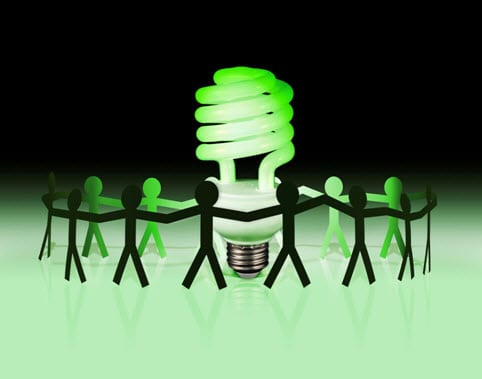Sprint takes on hydrogen fuel cells
January 30, 2014Sprint uses fuel cells to provide backup power to network facilities in the US
 Telecommunications company Sprint has begun affixing hydrogen fuel cells to the rooftops of its network buildings. The company has taken a strong interest in fuel cells recently, acknowledging that these energy systems could be ideal for backup power purposes. Fuel cells are often used in the telecommunications industry for this purpose and these energy systems are especially popular in countries with a rapidly growing mobile network. Sprint believes that fuel cells will cut down on network outages in the future.
Telecommunications company Sprint has begun affixing hydrogen fuel cells to the rooftops of its network buildings. The company has taken a strong interest in fuel cells recently, acknowledging that these energy systems could be ideal for backup power purposes. Fuel cells are often used in the telecommunications industry for this purpose and these energy systems are especially popular in countries with a rapidly growing mobile network. Sprint believes that fuel cells will cut down on network outages in the future.
Department of Energy provides support for Sprint’s fuel cell initiative
Sprint has received financial aid for its endeavor concerning fuel cells from the Department of Energy. The federal agency has also taken a strong interest in fuel cells and has been investing in their research recently. Much of the agency’s attention concerning fuel cells has involved examine how these energy systems can be used in transportation. The agency is also investing in the development of a working hydrogen fuel infrastructure that will be able to support vehicles equipped with fuel cells. These vehicles are expected to see widespread release in 2015.
Sprint now boasts of more than 500 fuel cells across its network
Sprint has already deployed some 500 hydrogen fuel cells throughout its network. The company notes that these energy systems will help it avoid power outages, especially as Sprint continues to expand its network coverage. Currently, the fuel cells being used by Sprint cover approximately 25% of its total network. The majority of these fuel cells are located on the rooftops of network facilities located near major metropolitan areas.
Fuel cells may help companies cut down on their emissions production by a significant margin
While fuel cells are often used as backup power systems, they are beginning to receive more attention as primary energy systems. Fuel cells have shown that they can provide electrical power reliably, making them attractive to businesses that are looking to reduce the emissions they are responsible for. Sprint expects that fuel cells will help lower its emissions by 20% by 2017.

 With over 15 years of reporting hydrogen news, we are your premier source for the latest updates and insights in hydrogen and renewable energy.
With over 15 years of reporting hydrogen news, we are your premier source for the latest updates and insights in hydrogen and renewable energy.